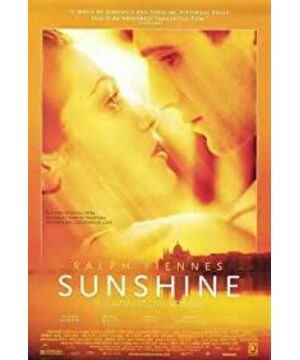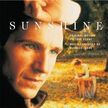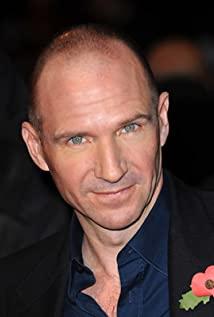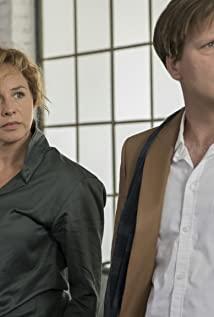Similar to Forrest Gump and Living, this film uses four generations of experience to talk about European politics from the end of the 19th century to the end of the 20th century. The plot is completely driven by the timeline, and the characters appear briefly at each point in time, or It is an important point in life, or an individual's response to the turbulent years. Each segment has almost no dramatic plot at all, but it has established the most representative image of the person at the time.
Great-grandfather 1850s-1916
Great-great-grandfather had a secret recipe for wine, and died in an accident. Great-grandfather Emmanuel took the secret recipe from the countryside to the city in his teens to gain a foothold by selling wine. The plot did not involve his entrepreneurial marriage, and he and his two sons, who had become a middle class in the city in his later years around the 1900s, were getting along. He is an enlightened parent. The eldest son Ignatz studies law and the younger son Gustave studies medicine but does not take over his business. He is also proud of their ambition. Facing the cousin relationship between his elder son and his brother’s daughter Valerie, he stopped at first. In the end, he accepted the risk of being curse. He hid the secret recipe of Sunshine medicinal liquor in the tin box, and wrote a letter admonishing Ignatz to stay away from vanity and keep faith. This letter became a footnote to the fate of the following three generations. If placed in the context of China, it is a child who entered the city from the rural areas of Jiangsu and Zhejiang during the Taiping Heavenly Kingdom and became a big household in the city by doing a small business.
Grandfather 1870s-1919
didn't think his grandfather had any black spots besides becoming a husband and wife with his cousin Valerie. Ignatz worked hard to study the law, became a judge, integrated into the bureaucratic circle but did not favor favoritism, heeded the advice of his family, and did not engage in politics was considered unskilled. The film implies that he changed his name from Sonnenschein, which is commonly used by Jews, to Sors in Hungarian in order to become a judge, which is vain and vanity. I think it is a bit harsh. How prosperous life was in the first 15 years of the 20th century, and the beautiful visions at that time now seem to be ironic. At the beginning of the First World War in 1914, he also ushered in the pinnacle of his life and was received by Franz Joseph I.
His father was born in 1902-about 1944
Adam Sors spent most of his life related to fencing, and has little to do with other political events. The film's portrayal of this character revolves around the 1936 Olympic event. After the First World War, the anti-Semitism in Europe began to intensify. He started to learn fencing because he was bullied. After he emerged in the municipal club, he converted from Judaism to Catholicism in order to enter the military fencing club and won two national championships. Daily life is the two things of chasing someone else’s fiancée as a wife and being seduced by a sister-in-law. The pinnacle of life was the triumph of the 1936 Berlin Olympics.
In the 1930s, the Kingdom of Hungary sought to ally with Germany in order to regain the land lost in World War I. There are two interesting details that reflect the deterioration of the Jewish situation. Right choice", a Hungarian working in the United States after the 1936 Olympics warned the smug Sors to leave Hungary quickly and he was unwilling. Later, Sors' fencing coach went to Algeria with his family because his wife was Jewish. His chief told him that this was not as simple as a traitor, and the folks also had low-level anti-Semitism, so he was still hesitant. When the border closed, he went to the previous chief for help. The chief said, I would like to ask for forgiveness for I had said that. I was profoundly wrong. The new bill of economic circle, the Jews who announced the definition of the new bill on the radio, mentioned fow now, the situation that does not apply is the winner of the gold and silver medals in the war of 1914-1918 (your father would be exempted), participated in the revolution of 1918-1919 The family and children of the uprising revolutionaries (mother is exempted), members of the Olympic Committee and Olympic champions (Yes, we are exempted!) Sors went to the fencing club again but were not allowed. He said that I believe in Catholicism and my father has military exploits. I Being an Olympic champion, I should be exempted. The sir has a look that you are not going to heaven, anyway, he won't allow it. In the concentration camp, Sors insisted on his reputation and died with dignity. His wife and brother's family died. Hungary was liberated by the Soviet Red Army in 1945, Sors' mother Valerie and son Ivan returned home.
Genocide cannot be found in the context of modern Chinese history. KMT learned the German model and fascism, but did not learn racism, but this generation has a lot of hatred for the country. In the case of the grandfather who continued his official career, he inferred that his son went to participate in the May Fourth Movement in 1915. He may have studied abroad in Japan, returned to the Northern Expedition, and obtained an official position in the Nanjing government in 1927, or he may have gone in 1921. Nanhu held a meeting, and after returning from Guangzhou, he entered the mountainous area. He may also become a literary youth. After criticizing Duan Qirui and Zhang Zuolin and criticizing Wang Jiang, he went to Yan'an under the call of new democracy in 1942. Perhaps his father went south with the army in 1949, while his brother withdrew to Taiwan. There should be many novels and movies about this generation.
The son 1930-
experienced family destruction under the Nazi rule, but the new government is not good. As a victim of the Nazi roots, Ivan became a member of the East German Stasi of the Hungarian People's Republic and sang Stalin's hymn as a part of the propaganda tool.
In the Chinese context, perhaps it was the relationship between the fathers of the rich peasants and the KMT of the Qing Dynasty. The son was fighting against his father during the land reform, against the rightist father, and during the CR. If he didn't die, he would reflect on the end of CR in prison.
Happy families are similar, and unfortunate families have their own misfortunes, but the roots of misfortune are similar. For individuals, it is power & lust, and for the country, it is system and fortune. I don't know if the director did it on purpose. The beginning of the 20th century in the film was so graceful and luxurious, and the end of the 20th century was so boring and monotonous.
View more about Sunshine reviews











